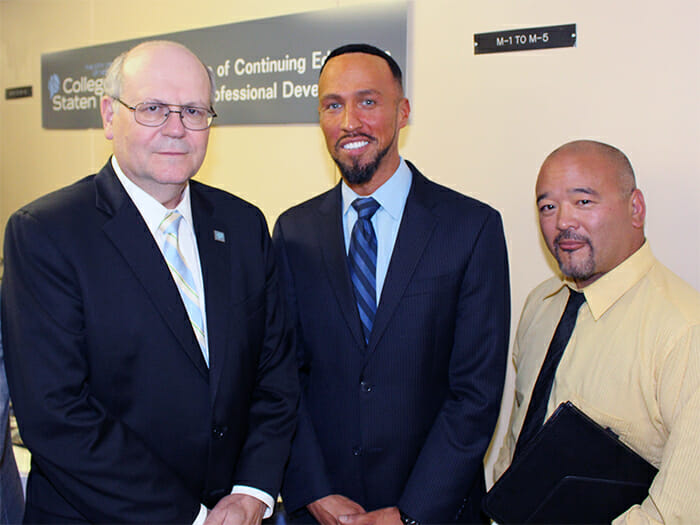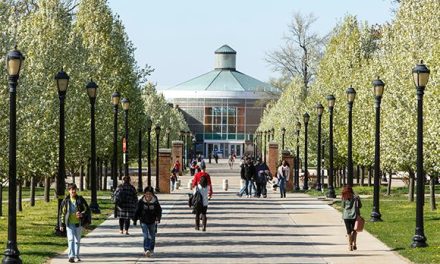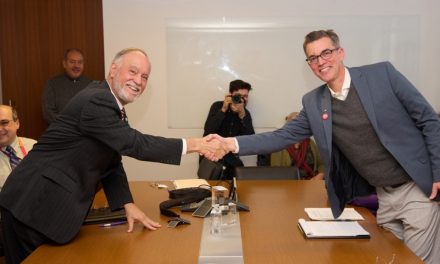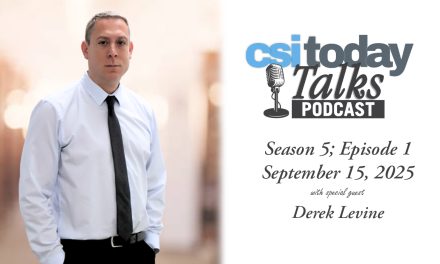The Master of Arts in Liberal Studies (MALS) Program at the College of Staten Island will celebrate its 25th anniversary with a reunion and conference on Saturday, November 15. The event will be held in the Center for the Arts (Building 1P), Room 120 from 2:00pm to 5:15pm.
The MALS Program provides college graduates the opportunity to engage in an intensive study of Western society, culture, and thought. The curriculum consists of interdisciplinary courses (seven required courses and two electives) in the social sciences and humanities that have been specifically created for the Program. Successful degree candidates must also submit a Master’s thesis.
CSI Professor of History David Traboulay, who is the coordinator of the MALS program, says that the Program, which stresses close advisement and a cohort approach to learning, “has helped students to grow in their jobs and become public citizens.”
Alumni of the program agree with Traboulay’s assessment. Philippe Marius, Director of the Office of Student Financial Aid at CSI, and a MALS Program alumnus, comments, “A Master of Arts in Liberal Studies, in the best tradition of a liberal-arts education, would indicate an educated member of a modern polity, which is not necessarily the same as an individual trained—even to the highest proficiency—in a modern occupation. My completion of the CSI MALS program indeed greatly enhanced my civic character by immensely augmenting my appreciation of the poetics as well as the mechanics of modern life, moving me closer—by however much—to the ideal constituent of a civil society.”
Another alumnus, Tony Gallego, Assistant Director of Media Services at CSI, adds, “Not only do you learn new and exciting things, you learn to question and think. It has also helped me to advance in my career. Because of the MALS program, I’m thinking of pursuing a second Master’s in Cinema and Media Studies next spring.”
Sharing his own experiences, alumnus Lou Bruschi shed light on how MALS affected his life, “I have always been an eager student, if not a good one; part of the difficulty for me was being pigeon-holed into a single discipline. MALS removed the constraints of looking at a topic from one perspective. I am a social studies teacher for grades three through five and nine through 11; to be able to support the curriculum through literature, philosophy, mythology, and the broader humanities has been an invaluable resource to me as a teacher. Currently,” Bruschi continues, “I am a student in the Educational Leadership program at Wagner College. In the courses I have taken at Wagner I have come to appreciate the deeper lessons imparted through the coursework in the MALS program. Understanding comes through metaphor. MALS provided a foundation of understanding through texts that have applications in so many disciplines…To become an effective steward of an institution, there are two factors that contribute more than any others, experience and knowledge. Without providing specific vocational or professional training the MALS program has given me a wealth of both.”
Noting that “the curriculum is essentially about the classic texts of Western Civilization in the Modern Period, the 19th and 20th centuries,” with one non-Western class and another regarding ancient Roman and Greek civilizations, Traboulay hopes that the anniversary event will give MALS alumni a chance to offer suggestions on how to change the curriculum for the better.
The event will feature remarks from Traboulay and founding coordinator Fred Binder, an alumni panel discussion, and a keynote address from Professor Alfred Levine, Interim Dean of Research and Graduate Programs at CSI, entitled, “Culture, Consciousness, and Nature: The Context on Global Warming.”

















